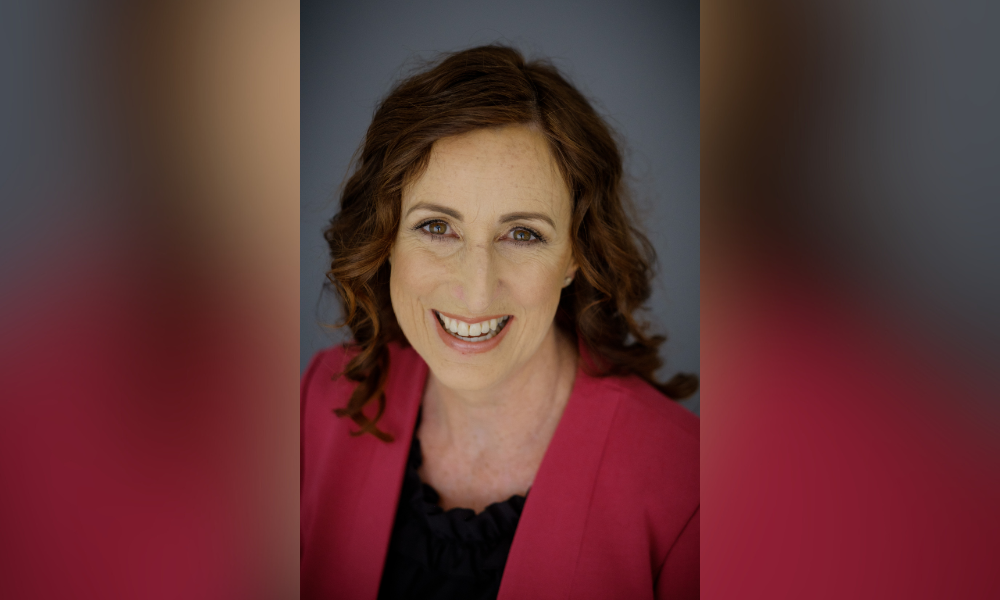
'Our role isn't about having a voice at the table because it's not at the table anymore – it's through the entire organisation,' says CPO

It’s often said that an HR’s role is at the table, but Roz Urbahn says this concept is somewhat outdated.
“From an HR professional’s point of view, I think our role now isn't about having a voice at the table because it's not at the table anymore - it’s through the entire organisation,” says Urbahn, CPO at the Livestock Improvement Corporation (LIC).
A shift as a result of Covid paved the way for those in the profession to flourish, she says.
“It was really the HR professionals’ time to shine. I think those skills that used to be called soft, I’m hearing are literally now called power skills.
“Chief execs now know that they can't just lead an organisation by task, it has to be by those power skills, it has to be to connect and work and talk in a different way.”
Prior to LIC, Urbahn was GM people and performance at Fletcher Building, and knew very little about the dairy industry before her current role but says the variety it offers has been invigorating.
“One thing I love about HR is the ability to jump into any sector. That is something that I've driven for my entire career. To me that’s a real highlight, that ability to be able meet amazing people and talk about amazing things that really make a difference.”
Piloting new wellbeing app
Urbahn - who has been featured on HRD’s Hot List 2023 and named NZ Director of the Year Gold Winner - takes pride in being prepared to be bold and adventurous, she says. “My whole ethos is to keep trying new things, always see what's happening, to go and be curious.”
And since innovation is one of LIC’s key values, her approach sits well, including when it came to piloting a new wellbeing initiative – an app called Groov - in conjunction with mental health advocate Sir John Kirwan.
“It's a really simple app on your phone,” says Urbahn. “It's literally fingertip access to a variety of modules on mental health and wellbeing.”
With such diverse roles at LIC, Urbahn was looking for something offering flexibility, that people could access from anywhere – especially out in the field – and that would be “bite-sized” and not overwhelming.
The six-month trial of the app involves 200 people leaders across the organisation. Urbahn felt it suited LIC’s overall wellbeing strategy, which is supported by a Well Aware programme - an LIC initiative that encompasses multiple wellbeing resources - and which she says is constantly evolving.
“The conversation about mental health is always going to keep getting bigger and better, and hopefully we see improvements,” she says.
Diversity ‘where the gold is’
The organisation brings in specialists like mental wellbeing advocate Nigel Latta and menopause author Niki Bezzant to open conversations on related topics. To keep up to date on what employees want from the programme, there are Health Champs - representatives from every business unit - who provide feedback.
“We've got everything and everyone at LIC. We have people who are world-leading scientists in a lab, through to graduates who are just starting out to get work experience. Some are out on farms dealing with animals all day every day with our farmers, and we’ve got corporate type roles as well - and everything in between. We have people who’re here until they retire and those starting out in a whole new career.
“It is challenging because it is so diverse, but to me that’s where the gold is.”
That diversity extends to the HR team as well, which is something Urbahn has been deliberately purposeful about, she says.
“I like people who don't just agree with me and are able to say, ‘Have you thought about…?’ Diversity builds on your ideas in a different way that keeps them fresh and interesting and you create much broader and deeper conversations. Without diversity, you don’t have progress.”
Future of AI in HR
One topic her team have agreed they need to be ahead of the curve with is AI.
“We recently had a strategy day looking at the future,” says Urbahn. “We focused on AI, asking, ‘What does that mean?’ The view is that our people team needs to be at the forefront of it, learning it, figuring it out.
“I’d personally like to see it taking away the things that don't add value, so that we can spend time on the things that really matter. I think from that perspective, it can actually be very powerful. I think AI’s fascinating. I can't wait to see what else we can do with it.”
Technology’s already helped from an HR perspective in broadening the employee market, she says.
“We’re not so location focussed now for some of our roles. So our attraction strategy is much broader, much more exciting, because we can access different people. I think people are now making different lifestyle choices, so now instead of being worried that someone says, I want to work from somewhere else, you can literally say, ‘If you answer the three things: Will it work for you? Will it work for the team? Will it work for the business? If it does, then let's try it.’”